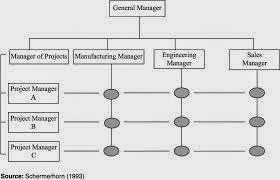14 PRINCIPLES OF MANAGEMENT
Henry
Fayol is considered the father of modern theory of general and industrial management.
In his views the process of management as an ongoing managerial cycle involving
planning, organizing, directing, co-ordination, and controlling, is actually
based on the analysis of general management by Fayol. Hence, it is said that
Fayol established the pattern of management thought and practice. The fourteen
principle of management are as follows
1. Division of work. Work
should be divided among individuals and groups to ensure that effort and
attention are focused on special portions of the task. Fayol presented work
specialization as the best way to use the human resources of the organization.
2. Authority. Managers must be able
to give orders. Authority gives them this right. Note that responsibility
arises wherever authority is exercised.
3. Discipline. Employees must obey
and respect the rules that govern the organization. Good discipline is the
result of effective leadership, a clear understanding between management and
workers regarding the organization's rules, and the judicious use of penalties
for infractions of the rules.
4. Unity of command. Every
employee should receive orders from only one superior.
5. Unity of direction. Each
group of organizational activities that have the same objective should be
directed by one manager using one plan.
6. Subordination of individual interests to the general interest. The interests of any one employee or group of employees should
not take precedence over the interests of the organization as a whole.
7. Remuneration. Workers
must be paid a fair wage for their services.
8. Centralization. Centralization
refers to the degree to which subordinates are involved in decision making.
Whether decision making is centralized (to management) or decentralized (to
subordinates) is a question of proper proportion. The task is to find the
optimum degree of centralization for each situation.
9. Scalar chain. The line
of authority from top management to the lowest ranks represents the scalar
chain. Communications should follow this chain. However, if following the chain
creates delays, cross-communications can be allowed if agreed to by all parties
and superiors are kept informed.
10. Order. People and materials
should be in the right place at the right time.
11. Equity. Managers should be
kind and fair to their subordinates.
12. Stability of tenure of personnel. High employee turnover is inefficient. Management should provide
orderly personnel planning and ensure that replacements are available to fill
vacancies.
13. Initiative. Employees who are
allowed to originate and carry out plans will exert high levels of effort.
14. Esprit de corps. Promoting
team spirit will build harmony and unity within the organization.



Comments